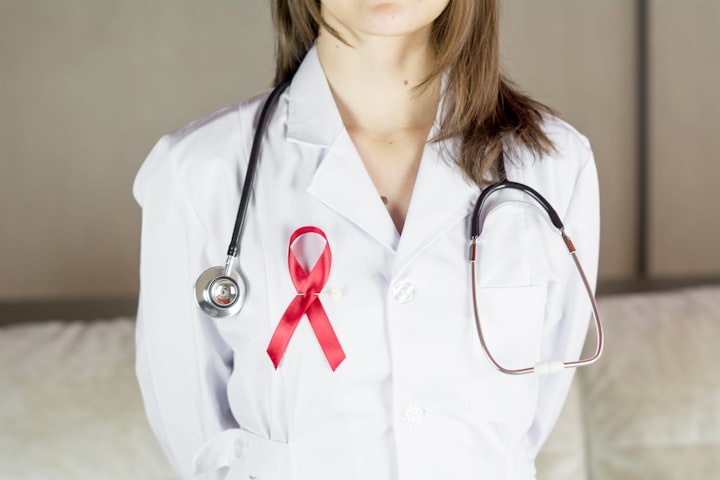Cancer Prevention and Treatment
Empowering Lives Through Awareness, Early Detection, and Comprehensive Care

Title: Cancer Prevention and Treatment: Empowering Lives through Awareness, Early Detection, and Comprehensive Care
Introduction:
Cancer is a complex and multifaceted disease that affects millions of lives worldwide. It is characterized by the uncontrolled growth and spread of abnormal cells in the body. While cancer continues to pose significant challenges, advancements in prevention and treatment have improved outcomes and enhanced the quality of life for individuals affected by the disease. In this article, we will explore the importance of cancer prevention, early detection, and comprehensive treatment approaches.
Cancer Prevention:
Lifestyle Choices: Engaging in healthy lifestyle behaviors can significantly reduce the risk of developing cancer. This includes avoiding tobacco and excessive alcohol consumption, maintaining a healthy weight, adopting a balanced diet rich in fruits and vegetables, and engaging in regular physical activity.
Sun Protection: Protecting the skin from excessive sun exposure and using sunscreen with a high sun protection factor (SPF) can help prevent skin cancer. Seeking shade during peak sun hours and wearing protective clothing are also essential.
Vaccinations: Certain viral infections, such as hepatitis B and human papillomavirus (HPV), can increase the risk of developing certain types of cancer. Vaccinations against these viruses can significantly reduce the likelihood of developing associated cancers.
Environmental Awareness: Minimizing exposure to environmental carcinogens, such as asbestos, radon, and pollutants, is crucial. Implementing workplace safety measures, ensuring proper ventilation, and reducing exposure to harmful chemicals can help prevent occupational and environmental cancers.
Early Detection:
Screening Programs: Regular cancer screenings can help detect cancer at its earliest stages when treatment options are most effective. Examples of common screening tests include mammograms for breast cancer, Pap smears for cervical cancer, and colonoscopies for colorectal cancer.
Self-Examination: Encouraging individuals to perform regular self-examinations, such as breast self-exams or testicular self-exams, empowers them to identify any unusual changes or abnormalities that may warrant further medical evaluation.
Awareness of Warning Signs: Educating individuals about common signs and symptoms of cancer can prompt early medical intervention. Symptoms such as persistent fatigue, unexplained weight loss, unusual bleeding, changes in bowel or bladder habits, or the presence of a lump should be promptly evaluated.
Comprehensive Cancer Treatment:
Multidisciplinary Care: Comprehensive cancer treatment involves a multidisciplinary approach, bringing together a team of healthcare professionals from various specialties to provide personalized care. This may include medical oncologists, surgical oncologists, radiation oncologists, nurses, social workers, and mental health professionals.
Surgery: Surgical interventions play a significant role in the treatment of cancer, aiming to remove the tumor and surrounding affected tissues. Advances in surgical techniques, such as minimally invasive procedures and robotic-assisted surgeries, have led to improved outcomes and reduced recovery times.
Radiation Therapy: Radiation therapy utilizes high-energy rays to destroy cancer cells or inhibit their growth. It can be used as a primary treatment or in combination with surgery and chemotherapy to achieve optimal results.
Chemotherapy: Chemotherapy involves the use of medications to destroy cancer cells or impede their ability to grow and divide. It can be administered orally, intravenously, or topically and may be used before or after surgery or radiation therapy.
Targeted Therapies: Targeted therapies focus on specific molecular targets in cancer cells to disrupt their growth and survival. These therapies, often tailored to the individual's genetic profile, can be more effective and have fewer side effects than traditional chemotherapy.
Immunotherapy: Immunotherapy harnesses the body's immune system to recognize and attack cancer cells. It can boost the immune response, helping the body fight cancer more effectively. Immunotherapy has shown remarkable success in treating certain types of cancers, including melanoma and lung cancer.
Palliative Care: Palliative care aims to improve the quality of life for individuals with cancer by managing symptoms, providing pain relief, and addressing emotional and psychosocial needs. It can be provided alongside curative treatment and is focused on holistic support for the patient and their loved ones.
Conclusion:
Cancer prevention and treatment strategies have made significant strides in recent years, offering hope and improved outcomes for individuals affected by the disease. By promoting cancer prevention through lifestyle choices, early detection through screening programs and self-examinations, and providing comprehensive treatment options, we can empower individuals and enhance their chances of successful outcomes.
Continued research, advancements in technology, and collaboration among healthcare professionals and organizations are vital for further progress in cancer prevention and treatment. Additionally, raising awareness, promoting access to screenings and vaccinations, and providing support systems for patients and their families are crucial components of a comprehensive approach to cancer care.
By prioritizing cancer prevention, early detection, and comprehensive treatment, we can strive to reduce the burden of cancer on individuals and societies. Together, we can work towards a future where cancer is detected early, treated effectively, and where the quality of life for individuals impacted by cancer is improved and sustained.





Comments
There are no comments for this story
Be the first to respond and start the conversation.